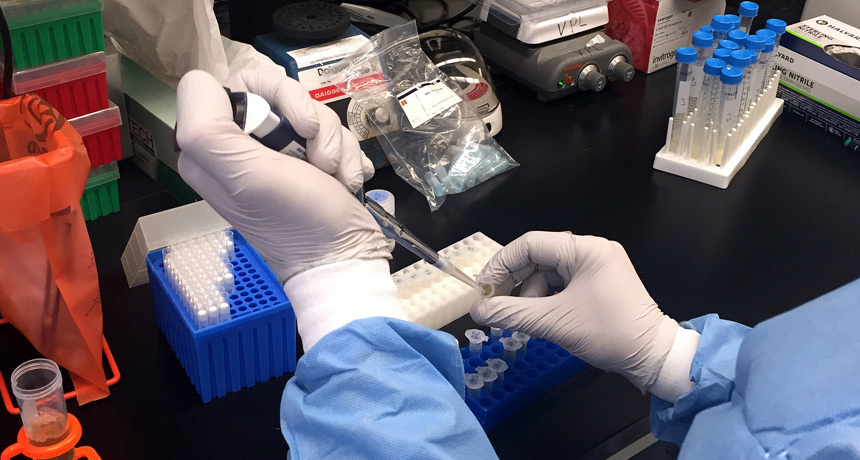Questions for ‘Zika vaccines look promising’

A virus researcher works with Zika samples at the National Institute of Allergy and Infectious Diseases Vaccine Research Center.
NIAID/ FLICKR (CC BY 2.0)
Share this:
- Share via email (Opens in new window) Email
- Click to share on Facebook (Opens in new window) Facebook
- Click to share on X (Opens in new window) X
- Click to share on Pinterest (Opens in new window) Pinterest
- Click to share on Reddit (Opens in new window) Reddit
- Share to Google Classroom (Opens in new window) Google Classroom
- Click to print (Opens in new window) Print
To accompany feature “Zika vaccines look promising”
SCIENCE
Before Reading:
1. What is the Zika virus and where are most cases occurring?
2. What are concerns about the infections?
During Reading:
1. Large numbers of Zika infections have been occurring in what city, the site of the 2016 Summer Olympics?
2. One new vaccine is made from an “inactivated” virus. What is that?
3. What is the second new vaccine made from?
4. The new candidate vaccines protected mice for how long in the initial — preliminary — tests?
5. When are both vaccines currently expected to be tested in people?
6. What did the monkey study show?
7. How does pregnancy affect the Zika virus infection, according to Dawn Dudley’s research?
8. What is microcephaly?
9. Name three other new health problems seen in some babies in Brazil that were infected with Zika before birth?
10. According to Yaneer Bar-Yam, how many microcephaly cases might Colombia see by October 2016?
After Reading:
1. Vaccines are a good way to guard against infection. But when they aren’t available, communities must find other ways to limit the spread of mosquito-borne germs, such as the Zika virus. Do some research to see what other techniques individuals and communities are exploring to fight the spread of diseases by mosquitoes? Describe at least three strategies. Which are easiest for individuals to do? Which appear to be most effective? Which are most costly? Explain what you would recommend to your community leaders as a Zika-control strategy, based on what you learned.
2. Do some research on vaccines and the idea of “herd immunity.” What is it and how does it work to keep people safe who had not been vaccinated ?
MATHEMATICS
1. In the study with monkeys by Dawn Dudley’s team, most monkeys infected with Zika cleared the virus within 10 days. In one pregnant monkey, however, the virus lasted 57 days. On a percentage basis, how much longer was that than the average? Imagine that the virus lasted 34 days in another animal. How much longer was that than the average (on a percentage basis)? How much shorter was that (on a percentage basis) than the infection that lasted longest? Show your work.